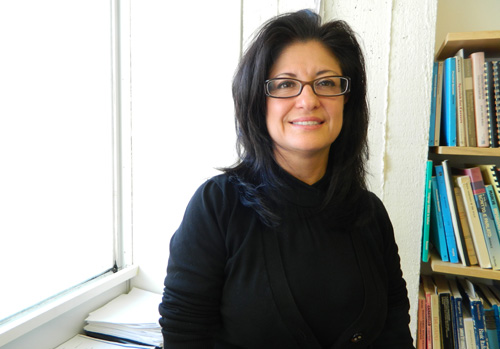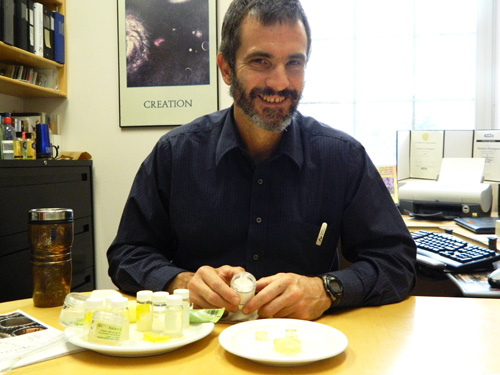
This year the Canadian Hispanic Business Association has nominated two U of G faculty members as among the most influential Hispanic Canadians – and, coincidentally, both are originally from Ecuador.
The winners – 10 out of the more than 30 nominees – will be announced Nov. 21 at a reception at the Toronto Board of Trade.
“The Hispanic population in Canada is larger than we think,” says Rosario Gomez, one of the nominees and a Spanish professor in the School of Languages and Literatures. “And it’s growing – more than 70 per cent of the Hispanic immigrants have arrived here in the last 25 years.” Yet the group’s contributions to Canada have not been widely recognized.
Gomez came to Canada from Ecuador at age 12, and since then has been preoccupied with language issues. Gomez became a teacher of English as a second language, then studied Spanish and English linguistics. “It was very rewarding to teach English as a second language, and now to teach linguistics and Spanish. Drawing from my own experience in second language learning, I’m working on a book on English pronunciation for Spanish speakers by analyzing both phonetic systems at once.
“Adult learners of English find that mastering pronunciation is challenging, and because pronunciation is the most obvious feature, it is often the biggest barrier when dealing with everyday social situations. Understanding how both phonetic systems influence each other in the acquisition of a second language is key.”
Gomez also conducts research in Spanish sociolinguistics and belongs to an international network of linguists working on creating a large database of speech samples of Spanish varieties. This database will provide researchers with readily available materials for conducting research on how Spanish is changing. In addition, she has two forthcoming books: the first is about phonetic and phonological changes in Spanish in Latin America and Spain; the other is a publication she worked on with colleagues from Mexico.
Being nominated struck an emotional chord for Gomez: “I was very touched that people felt I was deserving of this award, and I hold the Hispanic community close to my heart.” Letters supporting her nomination were submitted by Robert Glickman and Jack Chambers, both professors at the University of Toronto, and several of her former students and other colleagues.

Alejandro Marangoni, U of G’s second nominee, is a professor of food science and Canada Research Chair in Food, Health and Aging. His research focuses on fats and oils. “I’m looking for ways to make fats healthier,” he says. “We do a lot of work on chocolate, which is nice because if our experiments don’t work out, we can eat them.”
But Marangoni’s research extends into many other areas. Some of his studies try replacing the hard (saturated) fats in foods such as sausages with gels made of oil and cellulose. “People still want the texture and flavour, so we are trying to give them those features but with a healthier type of fat,” he explains. Other research is working on heat-resistant chocolate that will hold up in countries like India and Brazil.
Fats have a role in products beyond food. Marangoni also studies the components of lipstick that give it a particular texture and staying power, and creams for dry skin that actually are absorbed by the top layers of skin rather than just acting as a barrier. He works in an international context; his work often has immediate practical use and he has connections with manufacturers around the world.
Marangoni came to Canada in 1981 at age 16, after winning a place in the Lester B. Pearson College in Victoria, B.C., (one of 13 United World Colleges created during the Cold War to bring young students from around the world to study together). After graduation, he went to McGill to study chemistry and completed his PhD at U of G before moving to San Francisco to do a post-doc. He returned to Guelph because, he says, “Guelph is a really good place if you want to be creative. It’s easy to collaborate here so you can accomplish a lot.”
Like Gomez, he’s very honoured to be nominated for this award. “The community where you grow up is always a part of you, and being recognized by your community is very meaningful.” He also thinks it is important for younger Hispanics to see these role models. “Many of the past nominees and winners have been business owners. I think it’s important to recognize different types of people, so that the young person can see someone from the same background who is an academic or a scientist, as well as people in business. It opens doors for them.”
Gomez also believes these awards can help dispel some of the stereotypes about Hispanics and immigrants in general. “There’s the idea that Hispanics are drug dealers or that they are a burden to the system, and we need to show that in fact, Hispanics do contribute very significantly to the community.”